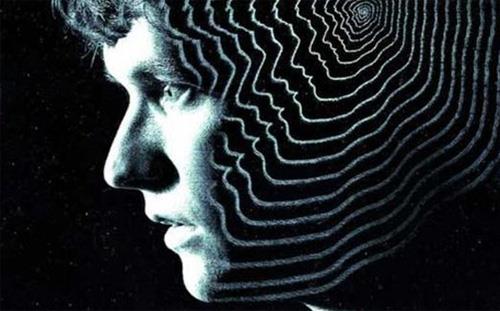
No, not Game of Thrones. Not Chernobyl, though both had moments of real, genuine quality. And certainly not Survivor in its ‘Me Too’ season, which one prominent New York reviewer likened to a dumpster fire and which most fans, even ardent, longtime fans, found distinctly uncomfortable.
Asked to decide the defining TV show of 2019, I went with an outside-the-box choice — an Emmy Award winner for writing (again, not Chernobyl, good though that was) — that, the more I think about it, can lay claim to being the defining program of the decade.
Black Mirror: Bandersnatch, an interactive 90-minute thriller from Netflix, gave viewers the power to choose different story outcomes — not just the ending, but at forks in the road along the way, during the telling of the story itself. During one moment midway through, the protagonist has to choose between a Tangerine Dream album — on vinyl! — as his life’s soundtrack, or a Tomita album, also on vinyl. That’s about as existential a life choice as it gets. (I grew up listening to Tangerine Dream, so for me, it was an easy choice.) The genius of Bandersnatch was that no matter what choice you made, you were always left wondering how different the story had been had you chosen the other option.
Bandersnatch, written by Black Mirror creator Charlie Brooker — who has now won three Emmys in a row for outstanding writing — is part Sliding Doors and part Groundhog Day, shot through with a very 21st-century sense of dread, where you never quite know if you’re being watched. Videogames are like mind drugs, and your computer is home to all kinds of viruses you know nothing about and bytes of malware that steal your mind bit by bit until you find yourself addicted to your keyboard. Who hasn’t felt that at least once in the past year, while surfing the web or wondering how your bank balance keeps fluctuating wildly, for no reason you can think of?
Based on that description alone, you could be forgiven for thinking Bandersnatch was little more than a cheap gimmick, but it had a poignant and compelling story.
A lonely young man in his late teens, an only child, is living alone with his single-parent father in a tiny apartment. Both have yet to recover from the death of the teen’s mother, who died in a train crash years earlier. The son blames his father for his mother’s death; the father is wracked by feelings of guilt and regret, even as he feels himself losing touch with his only son, who he fears is becoming mentally ill.
The son is a whiz at computers and is offered a coveted job with a big tech firm that creates video games. If nothing else, it will get him out of the apartment. (One of the choices that the viewer makes in Bandersnatchis whether he accepts the job or rejects it and if he accepts it, will he work out of the office or work from home?) Every choice, every decision, has hidden, potentially life-changing meanings.
Much has been said about Netflix’s dominance of today’s TV environment. It’s worth remembering that, at the beginning of the decade, Netflix’s primary business was renting DVDs through the mail. That seems a crazy business today — what lunatic came up with that idea, and how did Netflix ever manage to survive the financial crisis that has rocked the media world to its foundations? — but, of late, Netflix has been by far the entertainment industry’s most aggressive and audacious company.
In a brilliant break-down-the-fourth-wall moment early on in Bandersnatch, the young programmer — the story is set in the mid-1980s, remember — is faced with a choice: Netflix or some other run-of-the-mill entertainment option. “What’s Netflix?” he asks, bewildered. His computer spits out a Google description from the future; his father asks what he’s doing through the door, and he starts to reply that his computer is talking to him in strange voices from the future before thinking better of it.
There ’s so much going on in Bandersnatch that one almost has to watch it more than once, on an endless loop — Groundhog Day-like — choosing different options all the time.
Netflix has been messing with our heads for a number of years now, and so has modern technology. We’re all becoming ghosts in the machine.
Chernobyl was harrowing, brilliant, heartbreaking, and impossible to forget. Game of Thrones brought a saga-of-the-ages to an eye-filling, telling conclusion on a grand scale — as big as any Hollywood movie, a reminder once again that HBO lives by the slogan, “It’s not TV, it’s HBO.”
It was Black Mirror’s decade, though, and Bandersnatch’s year.
Nothing on TV matched Black Mirror for its uncanny reflection of how we live our day-to-day lives in this new technological world we find ourselves in. Bandersnatch opened up a whole new world of unsettling questions and sliding doors while ruminating on everything from the nature of free will to the compromise of living in a surveillance state where, to paraphrase Sting, every breath we take, every move we make, someone is watching us.
This time, we, the viewers, got to choose various outcomes, and live with the consequences.
It’s as if a new door opened, Twilight Zone-like, in the TV continuum, and Rod Serling stepped through, in color this time, angry, agitated and annoyed, warning us about the future. Netflix has seen the future, and it looks a little like this.